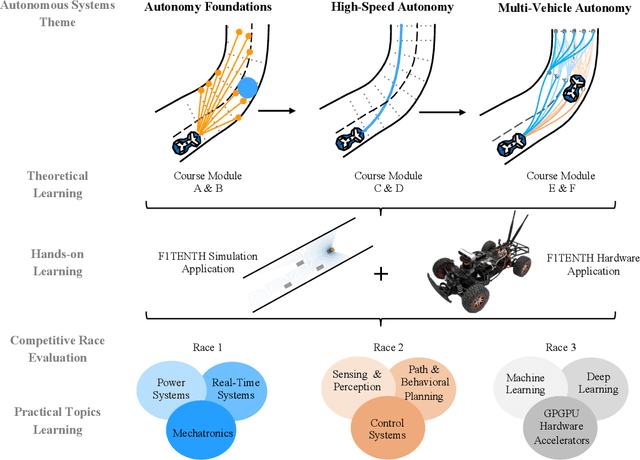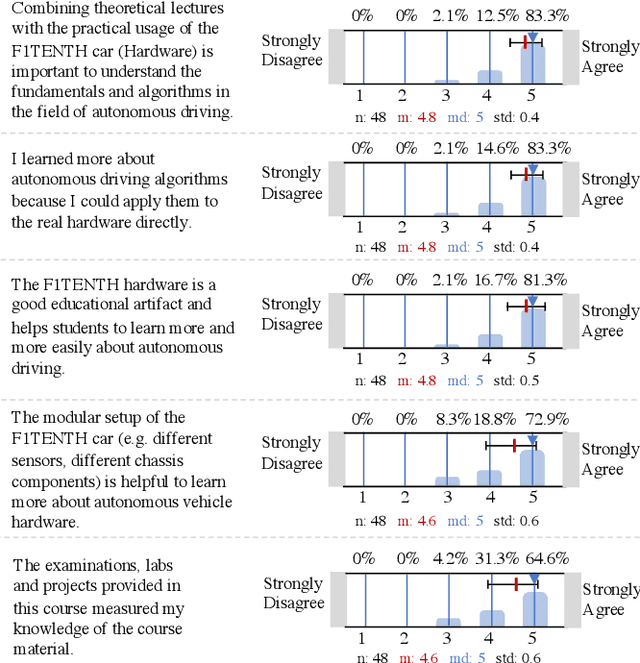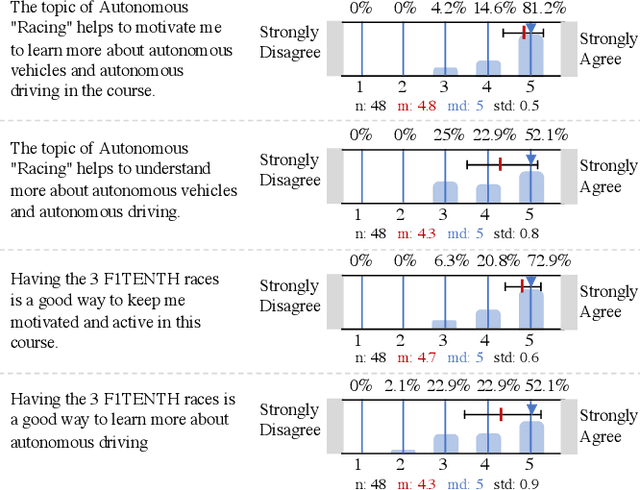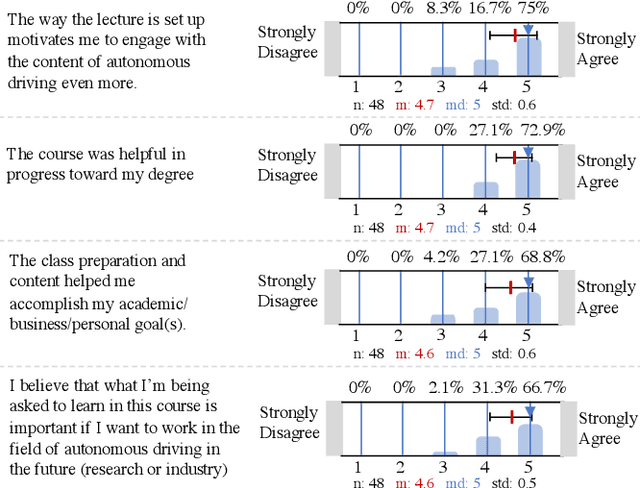Teaching Autonomous Systems Hands-On: Leveraging Modular Small-Scale Hardware in the Robotics Classroom
Paper and Code
Sep 21, 2022



Although robotics courses are well established in higher education, the courses often focus on theory and sometimes lack the systematic coverage of the techniques involved in developing, deploying, and applying software to real hardware. Additionally, most hardware platforms for robotics teaching are low-level toys aimed at younger students at middle-school levels. To address this gap, an autonomous vehicle hardware platform, called F1TENTH, is developed for teaching autonomous systems hands-on. This article describes the teaching modules and software stack for teaching at various educational levels with the theme of "racing" and competitions that replace exams. The F1TENTH vehicles offer a modular hardware platform and its related software for teaching the fundamentals of autonomous driving algorithms. From basic reactive methods to advanced planning algorithms, the teaching modules enhance students' computational thinking through autonomous driving with the F1TENTH vehicle. The F1TENTH car fills the gap between research platforms and low-end toy cars and offers hands-on experience in learning the topics in autonomous systems. Four universities have adopted the teaching modules for their semester-long undergraduate and graduate courses for multiple years. Student feedback is used to analyze the effectiveness of the F1TENTH platform. More than 80% of the students strongly agree that the hardware platform and modules greatly motivate their learning, and more than 70% of the students strongly agree that the hardware-enhanced their understanding of the subjects. The survey results show that more than 80% of the students strongly agree that the competitions motivate them for the course.
 Add to Chrome
Add to Chrome Add to Firefox
Add to Firefox Add to Edge
Add to Edge